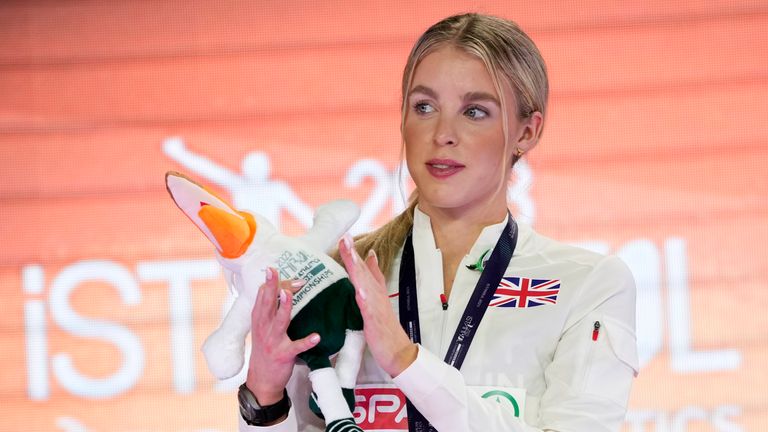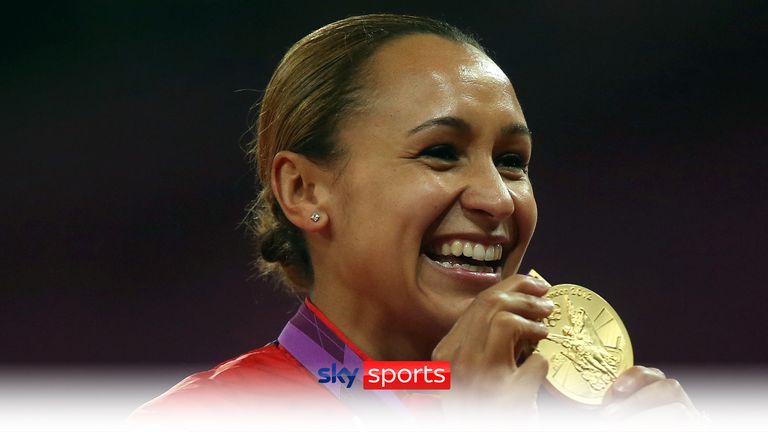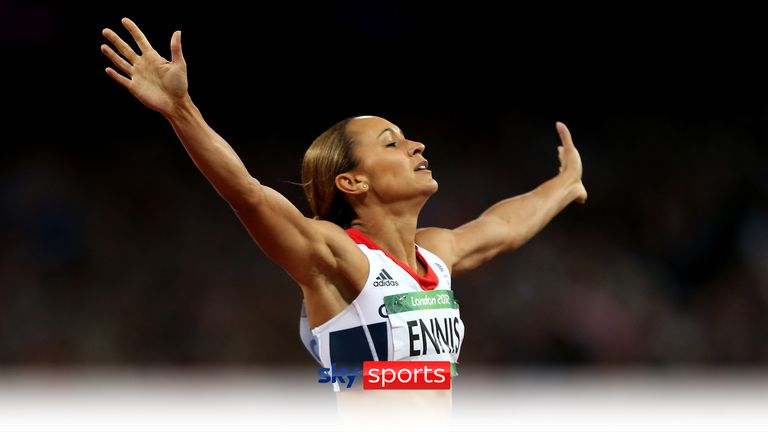Jessica Ennis-Hill: Returning from maternity leave to elite sport was 'one of my biggest challenges'
Jessica Ennis-Hill gave birth to her son in July 2014, before returning to win a third world title in 2015 and claim a silver medal at the 2016 Rio Olympics; "It's one of the most challenging things I've done... There is no clear maternity package; it's still very much a grey area"
Last Updated: 09/03/23 5:20pm
Two-time Olympic medallist Dame Jessica Ennis-Hill described the birth of her first child and her return to elite-level athletics as "one of the most challenging things I've done."
The London 2012 heptathlon champion gave birth to her son Reggie in July 2014, before returning to win a third world title in Beijing in 2015 and claim a silver medal at the 2016 Olympics in Rio before announcing her retirement.
- The elite athletes changing attitudes around pregnancy in sport
- Ennis-Hill calls for more support for female athletes during pregnancy
- Lionesses' campaign pays off as girls granted equal access to school sport
With Paris 2024 on the horizon, Ennis-Hill claimed she still gets "that adrenaline rush" when watching her heptathlon event, but stressed that her time at the top is over and she is instead eager to see how an exciting, young Team GB perform on the biggest stage.
Ennis-Hill was speaking to Sky Sports News on a range of topics, including maternity policies in elite sport and the "important conversation" to be had around women's periods and breaking that taboo...
Ennis-Hill on new government funding for women's sport
Girls will be granted equal access to all school sport in England as part of a package of measures unveiled by the government to coincide with International Women's Day.
The government is now promising more than £600m to improve PE across the next two years and up to £57m in funding for facilities outside school hours.
"It makes a huge difference.
"High-profile female athletes performing on the greatest stage, winning medals and taking trophies - doing what they do in such a gracious, incredible way - that transcends down to young girls everywhere, inspiring them.
"And where does it start? At school level.
"So if we can have that funding and that support to really keep those girls engaged at that time, it's an amazing thing."
Ennis-Hill on importance of International Women's Day
"We're making steps forward. And we're seeing it more visibly now.
"We're not just seeing more high-profile athletes out there performing, but we're seeing them in the public domain more frequently - hearing their back stories and journeys.
"That's transcending into younger age groups, which is starting to make a big difference.
"It takes time. It's a process. But we are making change.
Ennis-Hill on her experience with maternity policies in sport
"I think the conversation around women's health and female athletes' physiology - delving deeper into what makes us different and how we perform differently - is so important.

"For me, having my son during my career and then coming back was a real catalyst to that. I didn't see many athletes do it.
"I didn't really know it was a thing you could do. I thought you had to have your career, retire and then start your family. But that is beginning to change now. We're seeing more and more athletes do it - Allyson Felix, Serena Williams.
"And it's not just athletes starting a family and coming back to participate… they're coming back to win, at the top of their game again.
"It's one of the most challenging things I've done. There's so much to navigate your way through. There is no clear maternity package; it's still very much a grey area.
"The likes of Allyson Felix campaigning against big brands, putting policies in place and creating real change makes a difference for so many female athletes thinking about doing it.
"It is a challenging time and it still needs some clear definition about how to support those female athletes."
Ennis-Hill on breaking the taboo topic of women's periods
"We have to break so many taboos, but it's an important one for all of us. Not just for young girls and women, but also for men, for dads, for husbands to understand.
"There's the physiological changes that female athletes go through, and the barriers they face during those hormonal fluctuations throughout their life, but also the mental side of things.
"We see it with tennis at Wimbledon, and the conversation with high-profile tennis players about how uncomfortable they feel wearing certain colours like white.
"That's a great conversation to have. We have to move with the times, we have to adapt the way we compete and the kit we have in order to feel comfortable and supported, so we can be the best we can be."
Ennis-Hill on Team GB's Paris 2024 hopes
"I'm not going to say I miss it. I feel like I've had my time at the top and I really enjoy being part of athletics in a different way now.

"It's looking very strong. There's some incredible Team GB athletes coming through, like Keely Hodgkinson, Dina Asher-Smith.
"There were some great performances at the European Indoor Championships - we had three gold medals from three female athletes, Hodgkinson, Laura Muir and Jazmin Sawyers. All had sensational performances.
"I'm really looking forward to the Olympics and seeing how Team GB perform, and how many medals we can get."






